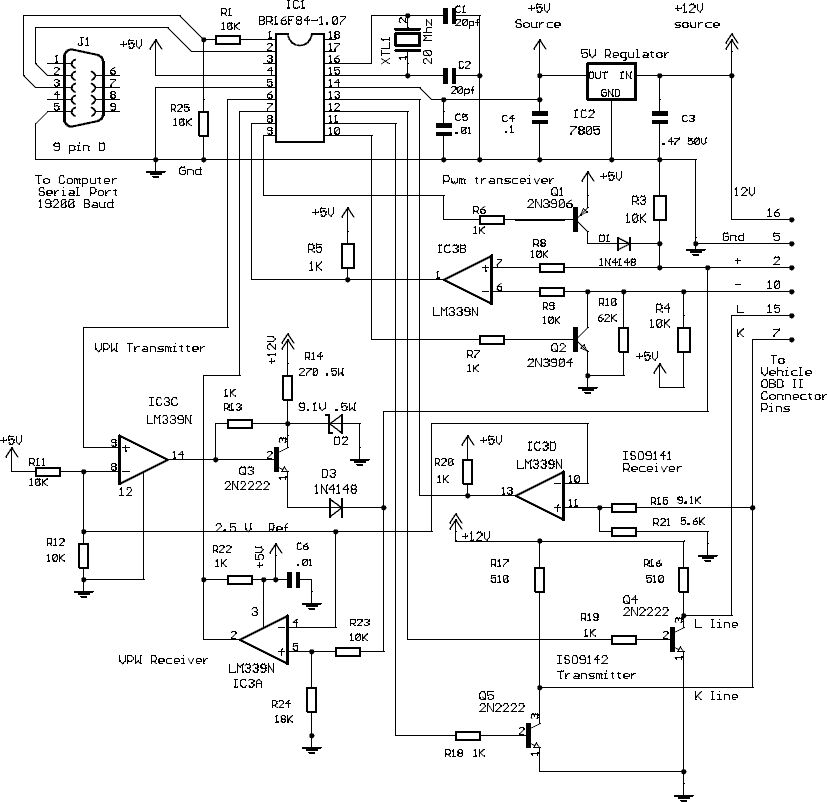connector or cable wiring scheme
 16 pin car OBD2
special connector at the car
16 pin car OBD2
special connector at the car
This device is a CMOS microcontroller which is designed to interface a personal computer or laptop with a vehicle’s On Board Diagnostic (OBD II) interface. It is intended to function with all three of the protocols used by vehicle manufacturers to implement the OBD II system as defined by SAE and ISO specifications. The OBD II system became mandatory for 1996 and up vehicles, but some vehicles were already fully or partially compatible with OBD II requirements prior to 1996. The chip is not suitable for the earlier vehicles such as OBD I. The device is intended to function as a simple scan tool and is capable of sending and receiving any OBD II message defined in SAE J1979 for any of the three types of OBDII bus implementations (PWM, VPW, ISO 9141-2). It can also be used as an inexpensive interface for custom instrumentation monitoring various vehicle parameters such as speed, RPM, coolant or intake air temperature, engine load, intake air flow rate, etc.

Components:
C5, C6 .01 UF, 25V
C4 .1 UF, 25V
C3 .47 UF, 50V
C2,C1 20 pf, 50V
R11, R12, R23, R9, R1, R3, R4, R25, R8 10 KOhm, 1/4 Watt
R24 18 KOhm, 1/4 W
R19, R18, R7, R20, R22, R5, R6, R13 1 KOhm, 1/4 W
R21 5.6 KOhm, 1/4 W
R16, R17 510 Ohm, 1/4 W
R10 62 KOhm, 1/4 W
R15 9.1 KOhm, 1/4 W
R14 270 Ohm, 1/2 W
R2 - Not used
D2 1N4739 Zener, 9.1V, 1W
D1, D3 1N4148 Diode
Q3, Q4, Q5 PN2222 Transistor, NPN
Q2 PN3904 Transistor, NPN
Q1 PN3906 Transistor, PNP
IC2 7805 Regulator, 5V
IC3 LM339N Quad Comparator
IC1 16F84-20 Microprocessor (firmware 1.07)
XTL 1 20 MHz Crystal, 20 Mhz
If you don’t use PWM, you can omit R4, R6, R7, R8, R9, R10, Q1, Q2, D1. If you don’t use ISO, you can omit R15, R16, R17, R18, R19, R21, Q4, Q5 If you don’t use VPW, you can omit R13, R14, R23, R24, D2, D3, Q3Don’t connect external power sources - all power direved from pin 16 of OBDIISerial port works at 19200 baud